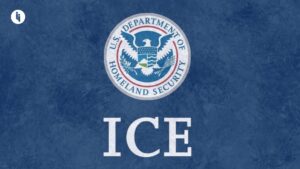Prime Minister Anthony Albanese met Chinese President Xi Jinping in Beijing last night (Monday). It was the first visit to China by an Australian leader in seven years.
Australia-China ties have been on a rollercoaster this past decade. Australia secured a coveted free trade agreement with China in 2015 after President Xi became China’s first leader to address Australia’s parliament.
But things then started to go sour as Australia became wary of a more assertive China, while China increasingly bristled at Australia’s responses.
Stay on top of your world from inside your inbox.
Subscribe for free today and receive way much more insights.
Trusted by 160,000+ subscribers
No spam. No noise. Unsubscribe any time.
When Canberra then called for an investigation into the origins of COVID-19 in 2020, Beijing cut off high-level contact and imposed a range of tariffs.
So why are things thawing now?
On the Australian side, a new government took office last year and set out to ‘stabilise’ ties via a change in tone more than substance, cheered on by businesses feeling the brunt of China’s trade restrictions.
And an increasingly isolated China saw this as a chance to dial things back, refocus on its domestic challenges, notch up a good news story with the West, and minimise secondary, oxygen-sucking quarrels.
So back to the present – what did last night’s meeting achieve? The two leaders joked about whether pandas or Tasmanian devils are cuter, but didn’t make any major announcements.
After a rollercoaster decade, the meeting itself was the message.
Intrigue’s take: This defrosting has been constructive for both leaders looking to demonstrate they can manage a tricky relationship without looking weak. That could also help other world leaders still thinking through how best to manage a bigger, bolder China.
But of course, the real test for the Australia-China relationship will come when the two countries next disagree.
So, seen from another perspective, this defrosting was a low-cost way for China to rebuild economic leverage over Australia in case it one day needs to influence Canberra’s positions on core Chinese interests (like Taiwan).
Also worth noting:
- Here’s how AustralianForeign Minister Penny Wong summarised her country’s current China approach: “When I say we seek to stabilise the relationship, I use that phrase quite deliberately. I don’t use the word normalise, I don’t use the word reset because the reality is neither country is going back to where we were 15 years ago.”





